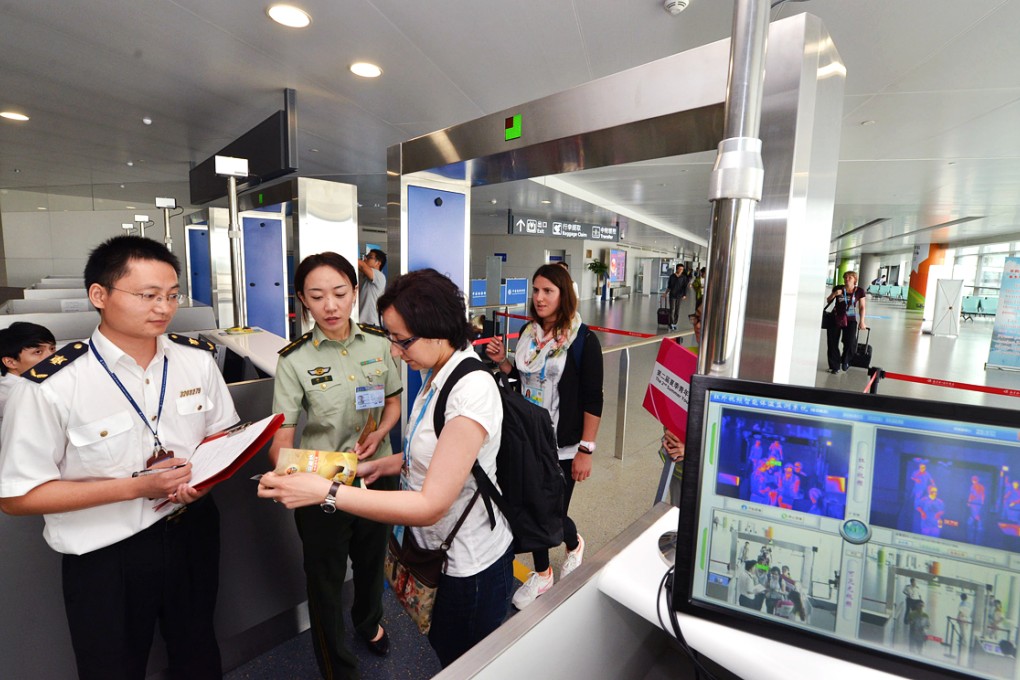Shenzhen company develops kit to test for Ebola virus, report says
PLA scientists are helping the company synthesise a chemical solution that would change colour in the presence of the deadly virus

A Shenzhen-based company has developed a field test kit that can quickly identify the Ebola virus, People’s Daily reports, as China is trying a range of countermeasures against the possible spread of the deadly virus on the mainland.
BGI, the world’s largest genomics research institution, is using technical assistance from People’s Liberation Army’s Academy of Military Medical Sciences to synthesise a liquid chemical solution that would change colour if the unique nucleic acid of the Ebola viral strain is present.
The state newspaper said the test kit could be massively deployed when the virus was detected on the mainland.
The test kits are being produced in Wuhan, Hubei, said a BGI spokeswoman. Major cities such as Beijing have 10,000 sets each.
However, mass production of the kits has not begun because they still need final approval from national food and drug safety authorities, said the spokeswoman, who asked that her name not be used.
“The US FDA [Food and Drug Administration] issued a special permit for an Ebola test kit last week,” she said. “We have submitted a request for special approval to the China Food and Drug Administration with hope that they will respond as efficiently as the US FDA to this public health emergency.